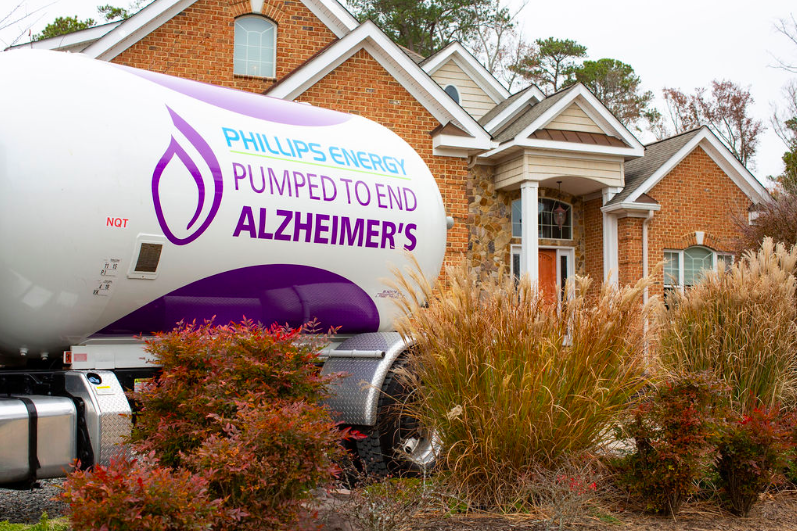Why the Alzheimer’s Association? Why Now?

An estimated 5.8 million Americans of all ages live with Alzheimer’s disease - a debilitating form of dementia that causes problems with memory, thinking and behavior. Despite decades of research, there is still no cure.
For Phillips Energy, the disease hits close to home as the family and team watched L. Frank Phillips Jr. battle Alzheimer’s.
It’s why the Alzheimer’s Association has become the signature charity of the energy company and why, in honor of its 25th year providing propane to the community, raised $25,000 for the Alzheimer’s Association.
Here are some other reasons why supporting the Alzheimer’s Association remains an important cause for Phillips Energy and the entire community it serves.
- Alzheimer’s is the sixth leading cause of death in the United States.
- Every 65 seconds someone develops Alzheimer’s
- 1 in 3 seniors dies with Alzheimer's or another dementia. It kills more than breast cancer and prostate cancer combined.
- Only 16% of seniors receive regular cognitive assessments during routine health check-ups.
- 5.8 million Americans are living with Alzheimer’s. By 2050, this number is projected to rise to nearly 14 million.
- Almost two-thirds of Americans with Alzheimer's are women.
- People age 65 and older survive an average of 4 to 8 years after a diagnosis of Alzheimer’s dementia, yet some live as long as 20 years with Alzheimer’s. This reflects the slow, uncertain progression of the disease.
- Older African-Americans are about twice as likely to have Alzheimer's or other dementias as older whites.
- Hispanics are about one and one-half times as likely to have Alzheimer's or other dementias as older whites.
Stay tuned to Phillips Energy throughout the year for ways to continue helping raise money to fight this disease.
Source: Alz.org
The Alzheimer’s Association is leading the worldwide effort to find a treatment for Alzheimer’s, delay its onset and prevent it from developing. Though research is still evolving, evidence is strong that people can reduce their risk by making key lifestyle changes, including participating in regular activity and maintaining good heart health.
